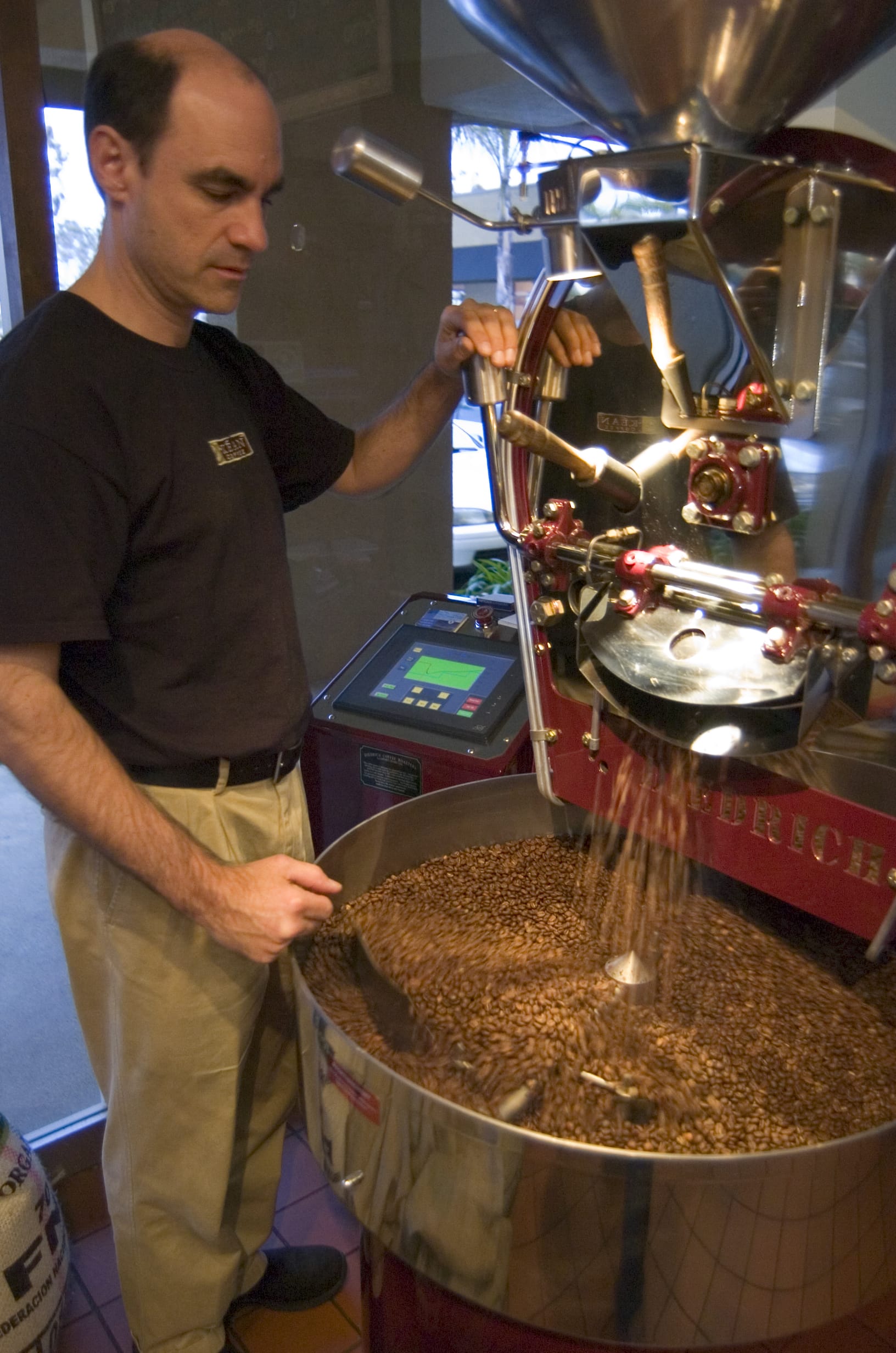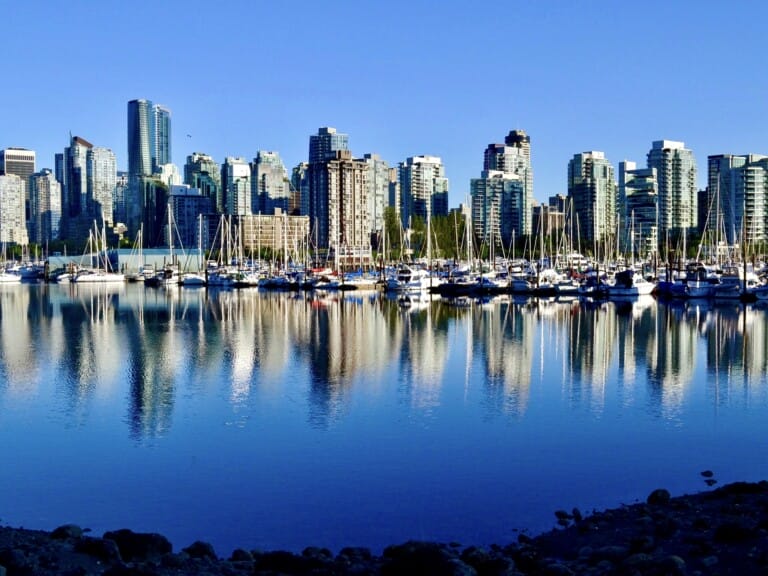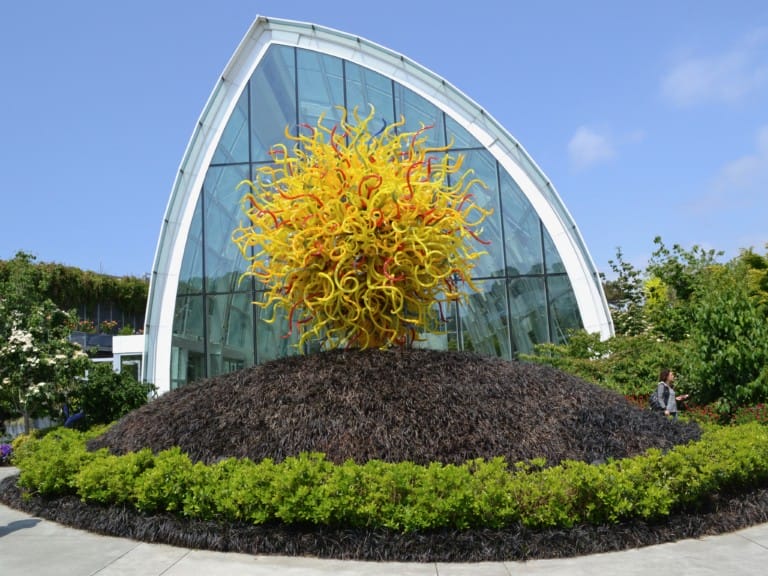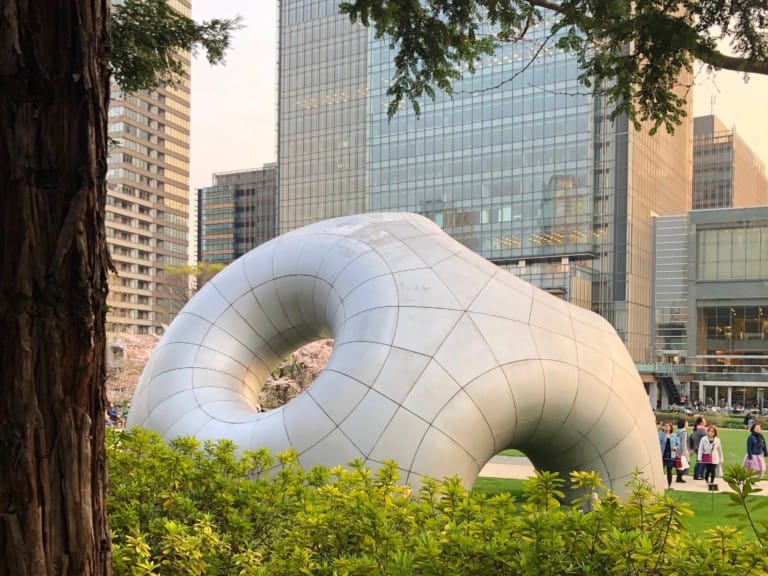Not many coffee professionals can say they wielded a machete while leading expeditions to unearth Mayan ruins, but that’s exactly the case with Martin Diedrich, who owns two Orange County outposts of Kean Coffee with wife Karen in Newport Beach and Tustin. Diedrich’s grandmother farmed coffee in Costa Rica from 1916-45. He grew up on his family’s coffee farm in the Guatemalan highlands, but studied archaeology at the University of Texas and was on his way to becoming a real-life Indiana Jones. However, his parents needed his support, so he left the jungle to help lead his family’s coffee company. They started Diedrich Coffee in an Orange County garage using his father’s handcrafted roaster. In 1986, Martin opened a retail coffeehouse in Tustin. By December 2004, when he left Diedrich Coffee, the company had grown to be a 200-outlet chain. One year later, Martin and wife Karen resurfaced in Newport Beach, naming their coffeehouse for son Kean. On November 15, I spoke with Martin Diedrich over the phone, while he was working at the company’s Costa Mesa roasting facility, and he better explained his connection to coffee.
Was it a given that you’d end up working with coffee for a living?
After being in the family for four generations, it was kind of in my DNA to do this, and hopefully if he chooses to do this, my son will continue in this direction someday. I’m not pushing him in that direction, but if he so chooses.
I grew up on my family’s coffee farm. It was small farms, it was kind of hand to mouth existence…some of my earliest memories were working with coffee with the dirt in my hands. I never expected to be in the coffee trade. Where I grew up in Guatemala, most of the kids my brothers and I hung out and played with were Mayan kids. They didn’t even speak Spanish…We’d converse in Mayan, and I was fascinated with their culture. Since I was 9 years old I wanted to be archaeologist, and that’s what I pursued, literally living the life of an Indiana Jones, complete with a hat and machete, although the whip was kind of nonsense, that’s not really practical. In 1982, when the thugs appropriated my parents coffee farm in Guatemala, we had no recourse. My parents were German citizens.
In 1983, my parents were really struggling. They lost the farm that would have been their nest egg. Living in the U.S., they didn’t really understand the culture, and had trouble speaking English. I couldn’t enjoy what I was doing if I knew members of my family were struggling. I started Diedrich Coffee back in 1984 and opened a small little prototype coffeehouse. I didn’t know what I was doing. I was an archaeologist. The whole coffeehouses phenomenon as we know it didn’t exist, for sure. I share this all with people in our coffeehouses, 75 people in total. They didn’t know a day when this coffeehouse culture wasn’t de rigueur. Back when I started, people didn’t know what espresso was…When I started in this business, not only did I have to learn how to do it, I had to educate the public…This whole industry was untested and unfamiliar. There was no set established operator in this trade…A few others around the country were dabbling in it. The espresso standards were fairly non-existent…Those were definitely pioneering times…Because of all the pioneering work, the SCAA rewarded me with a lifestyle achievement award.
Our farm was in the Antigua region of Guatemala. My father decided back in the ’60s that the coffee roasting technology was woefully inadequate for roasting higher altitude coffee…so my dad came to the realization that heck, they’re ruining these fined coffees we’re producing…my dad is a mechanical engineer by degree, got his degree back in Berlin…He decided he’d build a coffee roaster…I still have my dad’s original roaster that he invented and built in the ’60s. What my dad was doing was considered complete heresy, a way that most of us in the specialty trade accepts as the way to roast coffee. My brother Steve runs into people all the time saying no, you can’t roast coffee. My brother is now regarded as being one of the world’s premier coffee roaster builders. He’s now built more than 4000 machines, beginning in 1980, inspired by our father.
Nowadays we throw around these terms single origin coffee, estate coffee, direct trade. There are people that will tell you in the new generation that they pioneered that. Starting way back in 1972, we had a death in my family in Mexico – my younger brother – and my mother couldn’t bear to be down there in Latin America. She begged and pleaded with my dad to come to California. In 1982, my parents came up here and tried to establish a base for us, and my brothers and I still lived down there for a year by ourselves – my parents struggled to get established, and my dad brought the roaster he built and started roasting up here and started the roastery. He had a 1973 Volkswagen van, he’d drive back and forth to Guatemala four, five or six times per year, load the van with 12-14 sacks of coffee. My dad would schlep that coffee in the van all the way here back to Southern California, he’d get that coffee from his own farm, but also from farmers from Nicaragua and Chiapas, Mexico. He’d bring that coffee up here and when he sold a bag of beans to one of his guests, he practically knew the very tree that coffee grew own. He’d call those coffees “cinca” coffees. They were all estate coffees, single origin coffees. Then you have people talking about pioneering direct trade, my dad – one man – vertically integrated direct trade…Diedrich Coffee became the second largest coffeehouse chain the country. Corporate execs blew up the company with greed and avarice. It was no longer and coffee or people, which was sad, because those were fundamentals…I’m not so much in the coffee business as I am in the people business. I wasn’t selling coffee so much as I was selling experience. These business majors didn’t understand that, they thought about profit margins and blew up the company. The company is sadly no longer around…I left Diedrich Coffee in June 2004 and the moment I left there I immediately set on my plans for starting over again. I not only had to start over, I had to start over financially. After 22 years, I barely broke even financially.
Now that there are more coffee roasters emerging in Southern California, how does that change your approach, or does it?
Two small coffeehouses and doing very, very well. When I started Kean Coffee, my objective was to take coffee to the level of culinary art. There weren’t many people doing that six years ago, yet. Six years ago was the beginning of a whole new wave. A lot of people would say I’m getting back to my roots and in a lot of ways I did. When Diedrich got to the point I had 10 coffeehouses, I pined for the days when there were two or three of them. Energy level was high, and we were committed to delivering the level of service. I cringe when I think about what was state of the art back that. When I started Kean Coffee, I wanted to take the best practices in the world today and apply that. It’s interesting in how things have evolved since then, but I won’t stay behind. I just got back from Camp Pull-A-Shot in Santa Barbara. There was nobody else there my age. People might say, “You’ve already been through it all. You’ve already earned your credentials.” I wanted to learn what’s new and how can I apply that. What gets me out of bed every day, is the pursuit of excellent, the thrill of perfection, that’s what drives and motivates me. When I went to Camp Pull A Shot, I got my Barista Level 1 certification…I always want to be at the cutting edge of what’s going on…I was one of the judges at one of the very first Cup of Excellence ever, done in Brazil.
How many more Kean Coffee locations can you open, and do you have any more cafes in the works?
This time around I’m going to keep it small and special and local. It’s just me and my wife. My brother’s up in Idaho where he builds the roaster.
I don’t have any plans in the oven right now, but I’m sure that probably in the next year or two, we may very well open another one or two, but maybe not…I’m a man of modest means. I don’t need big houses, fancy cars and clothes. I don’t need to be a jet setter…what’s important is family and friends and I want to know everyone at Kean Coffee by name. I want to enjoy things that are the purpose and point of hard work and living, which is family and loved ones.
What do you look for when you’re hiring somebody to work behind one of your coffee bars?
Generally I’m looking for people who are friendly and outgoing. They don’t need to be the most bubbly personality, but if they are, that’s great. People skills are something that’s innate. There are a lot of talented people, but they shouldn’t necessarily be in public in an active environment. I look for people who have innate people skills, because everything else can be trained. Somebody can learn about coffee or the craft of the barista.
What’s a typical coffee consumption day like for you, beginning when you wake up?
I have to have a coffee right away or I don’t enjoy getting up. I get totally amped up right away and coast off of that for most of the rest of the day. When I’m in the coffeehouses, I’m drinking whatever we’re brewing every day, several times, to drink the coffee and taste what our guests are tasting. I cup coffee in order to determine the coffees we purchase – I source all my own coffees, some are direct trade from farmers I’ve known for years, I get coffee from Huehuetenango, that my father bought from, the Vides Family, Bolsa farm in Huehuetenango. I cup over 550 coffees a year that I’ve gone and actively solicited samples from…Out of those, I select 40 to 45 coffees that I buy throughout the course of the year. I cup coffees three times a week, maybe more.
Do you ever brew coffee at home?
I have a couple different brewing methods, kind of play around with it. I’ve always been kind of a pourover guy. I grew up with that. It’s an interesting phenomenon now, the whole pourover craze. A lot of young people think it’s a new thing, but my grandmother used Melitta pourover. That’s what I grew up on as a kid. Back in the ’70s I brewed coffee on a Chemex. I’ve been a fan of drip brewers forever. When the Hario came out, the V60, I was enamored by its looks. It’s such a cute looking thing. I had to have one. It’s so cool…I heard about the Moccamaster forever. I don’t normally like the automated home coffee brewers. They were practically disposable…I could never get into that, but when a couple friends in the trade had Moccamaster and they raved about them, they could hold the temperature throughout the brew, I tried it and like it a lot. I roast all my own coffee so I have access to phenomenal fresh roasted coffee every day, so it’s a no brainer.
What makes the Orange County coffee scene unique?
Unique in the sense that I don’t think it’s that unique. It’s still in large part very uneducated. When I started here 30 years ago, I had to educate the public on what espresso and cappuccino were all about. Five or six years after I started, Starbucks came into town and dominated the market. I was doing something different in Diedrich. The thing that we owe Starbucks credit for is they expanded the market significantly…They brought a whole lot of coffee drinkers to a higher level of awareness. Nowadays, Starbucks has lost its allure. A lot of people think it tastes harsh, bitter and over-roasted. A lot of people think that’s what great coffee is. Either they like it or don’t. In a lot of ways we’re still pioneering in Orange County. I have a great reputation based on what we did at Diedrich Coffee…We lost everything financially, but my reputation kept expanding. A lot of people think of Starbucks as the high water mark, and they don’t know much beyond that. Orange County is huge, we have a population of 3 million people. There are a lot of masses that still have no idea what fine coffee is all about. And that’s not unlike a lot of other places in the U.S.
If you could only have one more shot of espresso, who would pull the shot for you?
It certainly would have to be somebody who knows what they’re doing. It could be the current barista champion from El Salvador, or Pete Licata, more locally, if I’m not going to pull it myself.









Leave a Comment